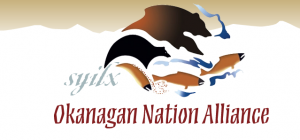This is a fantastic resource to learning authentically about the potlach traditions, history and current use. The site was created by the The U’mista Cultural Society who is focused on ensuring the survival of the cultural heritage of the Kwakwaka’wakw First Nations peoples whose traditional lands are on the West Coast of BC. They have a collection of videos, writings, photos etc that cover the history of the tradition for their people, the impact of the ban, and how potlach is used currently. Potlach is a commonly known Indigenous celebration, but one that so many non-Indigenous assume is used by all the First Nations which is inaccurate. Knowing that I am working and teaching on the lands of the Syilx people, it would be a great opportunity to compare and show the diversity of the Indigenous peoples. While the lessons are geared towards Social Studies 4/5, I think it could very easily be adapted to middle school students to learn about biases, perspectives and the impact of government and colonialism. Also to focus on the power and resilience of Indigenous peoples who refused to give up their traditions even when they were technically made illegal.
https://umistapotlatch.ca/intro-eng.php
Living Tradition

